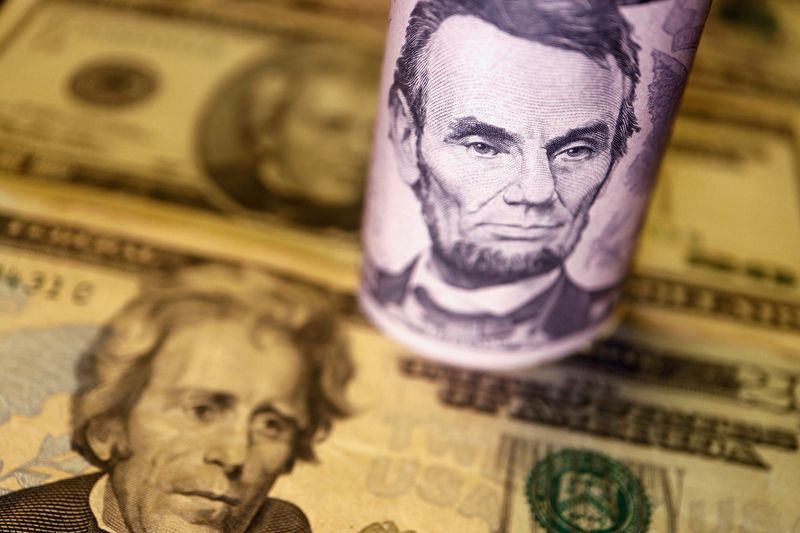By Iain Withers
LONDON (Reuters) - The U.S. dollar held firm on Wednesday ahead of the release of closely-watched minutes from the Federal Reserve's latest policy meeting, while the New Zealand dollar strengthened on the back of a record rate rise to curb rampant inflation.
The U.S. dollar index, which measures the currency against a basket of six counterparts, was broadly flat at 107.1, after shedding 0.65% the previous day amid a pick-up in sentiment that supported riskier currencies.
The dollar has broadly rallied against every major currency this year, boosted by supersized rate hikes aimed at curbing price rises, but recent cooler-than-expected inflation data has led investors to rein in bets on future rate increases.
Investors will be parsing minutes from the Fed's November meeting, due to be released at 1900 GMT, for any hints about the outlook for rates.
"At the moment FX traders are likely to be torn between the continued hawkish comments by Fed members and the prospect of what the Fed will do in 2023," currency analysts at Commerzbank (ETR:CBKG) said in a note.
The New Zealand dollar gained as much as 0.7%, nearing a three-month high, after the country's central bank lifted interest rates by a record amount despite warning the economy might spend an entire year in recession.
The kiwi was last up 0.2% on the day at $0.61640.
The Reserve Bank of New Zealand raised its benchmark rate by 75 basis points to 4.25% - the highest of any G10 economy - and said it may need to increase faster than previously indicated.
The euro was last up 0.1% at $1.03125, after fresh data showed the downturn in euro zone business activity eased slightly in November.
Meanwhile, sterling gained 0.4% to $1.19345, after preliminary British economic activity data beat expectations, though it still showed contraction was underway.
In China, a spike in COVID-19 cases has clouded hopes for a reopening of the world's second-largest economy, putting markets on edge.
Shanghai abruptly cancelled an auto industry event on Wednesday, while the city of Chengdu plans to conduct mass testing for residents for five straight days.
"The imposition of new restrictions near-term undoubtedly will have a negative economic impact," said Rodrigo Catril, a currency strategist at National Australia Bank.

"But at least for now the market seems to focus on the fact that over the medium term China is looking to gradually move towards a strategy of living with COVID."
Cryptocurrencies remained volatile, with bitcoin swinging between losses and gains. It was last up 2% at $16,590.